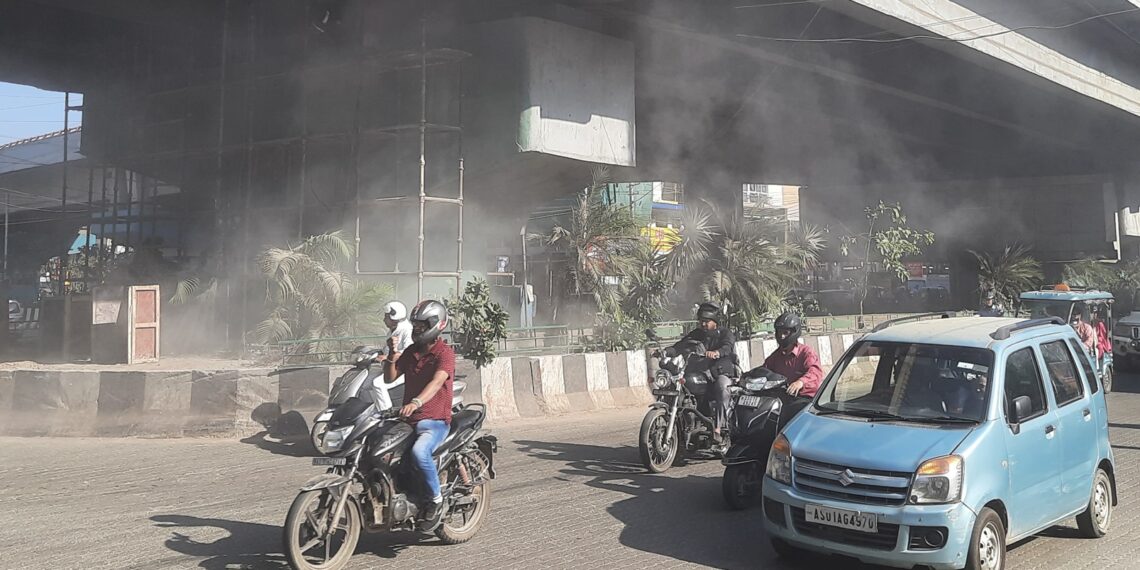GUWAHATI: In a worrying revelation, Guwahati finds itself ranked as the second most polluted city globally, according to a recent report by IQAir, a Swiss air quality technology company.
Painting a grim picture, the report revealed that the city with over 105.4 annual average concentration of harmful PM2.5 concentration in 2023, exceeds the World Health Organisation (WHO) limits by 10 times, reports in international press said on Tuesday.
The city’s escalating pollution levels have been attributed to numerous constructions works and rise in vehicular density and dust particles.
Begusarai, a city in Bihar, claimed the dubious title of the world’s most polluted city in 2023, with an alarming annual PM2.5 concentration of 118.9, a staggering 23 times higher than the WHO guidelines.
Following Begusarai and Guwahati closely in the IQAir rankings are Delhi, and Mullanpur in Punjab, highlighting the severity of the pollution crisis across Indian cities.
The report further revealed that a staggering 83 out of the 100 worst-polluted cities were located in India.
These cities not only surpassed but exceeded the WHO’s air quality guidelines by more than tenfold.
India’s air quality crisis is further underscored by its ranking as the third-most polluted country in 2023, trailing behind Bangladesh and Pakistan.
The report’s findings shed light on the alarming reality faced by 1.3 billion Indians, with a staggering 96% of the population breathing air quality seven times higher than WHO guidelines.
Particularly concerning is the focus on fine particulate matter, PM2.5, known for its adverse health effects.
PM2.5, when breathed in, penetrates deep into lung tissue and can even enter the bloodstream.
This fine particulate matter has been associated with a range of health issues including asthma, heart and lung diseases, cancer, and other respiratory illnesses.
As the air quality crisis escalates, urgent action is imperative to safeguard public health and mitigate the detrimental impacts of pollution on communities nationwide.















